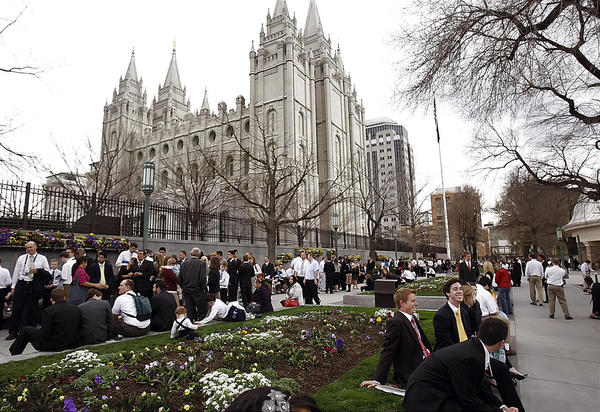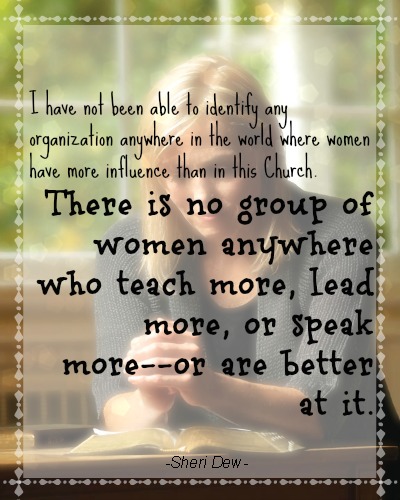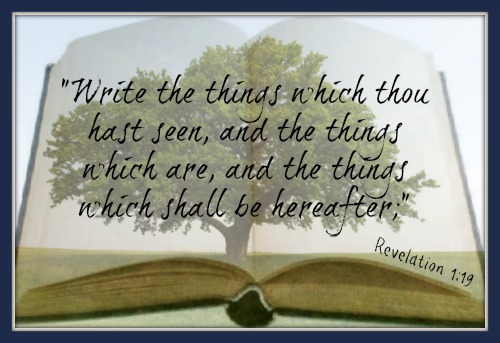Twice a year, Mormons hold a General Conference, giving them an opportunity to hear from their leaders. The conference is broadcast worldwide and over the Internet. The transcripts and video recordings are made available on the Mormon website after the conference, as well. Mormon is a nickname sometimes used to describe members of The Church of Jesus Christ of Latter-day Saints.
 The Conference is held in Salt Lake City, Utah each April and October. Salt Lake City became the Church headquarters after the Mormons settled there following intense persecution that included murders in the 1800s. Since that time, the Church has become world-wide.
The Conference is held in Salt Lake City, Utah each April and October. Salt Lake City became the Church headquarters after the Mormons settled there following intense persecution that included murders in the 1800s. Since that time, the Church has become world-wide.
Members who have tickets come to the conference dressed as they would dress for church—suits for the men and dresses for the women. The conference is held on Saturday and Sunday both, with some special sessions, such as one for women, held at other times close to the conference date. Ticket holders generally attend just one session in order to give as many people as possible an opportunity to attend.
Each session lasts two hours and begins and ends with an opening song and prayer. Although in regular Mormon meetings, these songs are normally sung by the congregation, at conference, they are provided by a choir. The world-renowned Mormon Tabernacle Choir provides music at some sessions, while others have choirs made up of local church members or university students. The prayers are given by a church leader who is invited to do so. In regular Mormon meetings, any adult may offer the prayer.
The meeting is conducted by a member of the First Presidency. The First Presidency consists of the president of the Church and two counselors. Speakers include these presidency members, apostles, leaders of auxiliaries and quorums. Both men and women are included among the speakers. Speakers are not assigned topics, but are instead instructed to pray to find out what God wants them to say.
What might a person who is not Mormon see as he watched the conference? He might note that many of the topics are those a person might hear at almost any Christian churches. For instance, in the October 2012 conference, viewers of all faiths heard the following messages:
Resurrection and Spiritual Comfort
Remember as you attended the funeral of your loved one the feelings in your heart as you drove away from the cemetery and looked back to see that solitary casket—wondering if your heart would break.
I testify that because of Him, even our Savior, Jesus Christ, those feelings of sorrow, loneliness, and despair will one day be swallowed up in a fulness of joy. I testify that we can depend on Him and when He said:
“I will not leave you comfortless: I will come to you.
“Yet a little while, and the world seeth me no more; but ye see me: because I live, ye shall live also” (John 14:18-19).
(Because I Live, Ye Shall Live Also,” Elder Shayne M. Bowen Of the Seventy)
Atonement of Jesus Christ
“Throughout your life there may be times when you have gone places you never should have gone and done things you never should have done. If you will turn away from sin, you will be able one day to know the peace that comes from following the pathway of complete repentance.
No matter what our transgressions have been, no matter how much our actions may have hurt others, that guilt can all be wiped out. To me, perhaps the most beautiful phrase in all scripture is when the Lord said, “Behold, he who has repented of his sins, the same is forgiven, and I, the Lord, remember them no more.”11
That is the promise of the gospel of Jesus Christ and the Atonement: to take anyone who comes, anyone who will join, and put them through an experience so that at the end of their life, they can go through the veil having repented of their sins and having been washed clean through the blood of Christ” (The Atonement, President Boyd K. Packer , President of the Quorum of the Twelve Apostles).
However, listeners may also encounter some teachings that are different from those experienced in Protestant and Catholic churches. Mormons do have some beliefs that differ from those of many other faiths. For instance, talks on the atonement often discuss the Garden of Gethsemane. Mormons consider the Savior’s process of taking on our sins to have been an active one that happened in Gethsemane, creating excruciating pain and suffering that He willingly endured for us. Then the process continued on the cross, where He died voluntarily. His resurrection made possible our own. Mormons believe we are saved only through the atonement of Jesus Christ.
Listeners might also note there are some unusual scriptures quoted. While Mormons believe in, use, and teach from the Bible, they also use several other books of scripture. The Book of Mormon is the best known of these. It is an ancient record of another group of Christians who lived in the Americas. This book also testifies of Jesus Christ, serves as the second witness called for in the Bible, and proves that Christ was divine, not just a great teacher. In addition, Mormons use the Pearl of Great Price, a small book with a variety of religious documents, and the Doctrine and Covenants, containing modern revelations.
The conference focuses on Jesus Christ and His gospel. The goal is to help listeners find inspiration and advice concerning how to live the gospel and to better honor their covenants (promises) with God and Jesus Christ. Because Mormons believe that God did not decide to quit speaking to us when the Bible ended, they have a prophet at the head of their church, just as God placed one over the ancient churches. For Mormons, the conference is our semi-annual message from God, since speakers are praying to learn what God wants them to say. They give us guidance and focus for the next six months. Generally, the counsel given covers long-established teachings—faith, repentance, acceptance of Jesus Christ as our Savior, atonement, family, and service, for instance. They simply give us additional ways to think about these common topics.
A person who is not LDS will come to an understanding of current Mormon priorities—the doctrines Mormons really care about, as opposed to those outsiders think we care about. They will learn what Mormons will be up to in the next six months, making conference a valuable tool for serious students of Mormonism.
About Terrie Lynn Bittner
The late Terrie Lynn Bittner—beloved wife, mother, grandmother, and friend—was the author of two homeschooling books and numerous articles, including several that appeared in Latter-day Saint magazines. She became a member of the Church at the age of 17 and began sharing her faith online in 1992.




This is a great article, a very interesting way to look at General Conference.